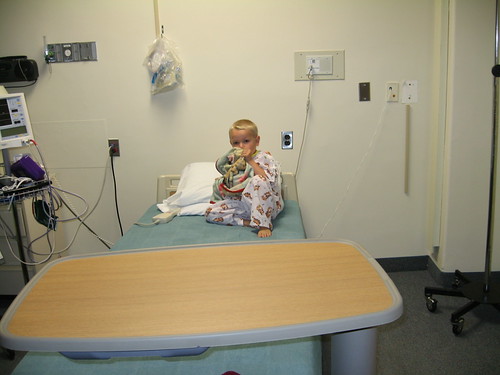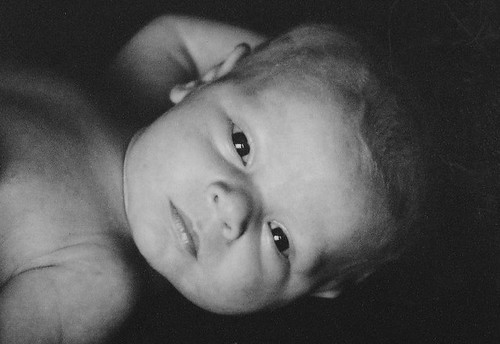"One Year"
Did you know that every year in the United States over 25,000 babies (1 in every 115-150) are born with a Congenital Heart Defect (CHD)?
Did you know that even though heart defects are the most common birth defect, for every dollar provided by the National Institute of Health, only one penny goes to Pediatric research, and only a portion of that penny goes to research heart defects?
In the year 2003, the year our son was born with this very congenital heart defect, approximately 1864 babies were born with a coarctation of the aorta. 303 of them died before they ever had a chance to leave the hospital. Over 16% of them never tasted fresh air, played in the sunshine, smiled at their mothers, said their first words, took their first steps, rode a tricycle, caught bugs......
I can't write those things down here without tears streaming down my face and my heart just aching and aching for the mothers who were not as fortunate as me. You see, my son was born in 2003. He should have been #1865. But we had a homebirth, and his broken heart was not counted in part of those statistics that year. Our son got to grow and do all of those beautiful little baby and toddler things until the day we sat in the pediatric cardiologist's office trying to take in the diagnosis and soak in the news that he would need surgery. Soon.
Even in this day and age, very little is known about what causes some hearts to develop improperly in the womb. Chromosomal abnormalities such as Trisomy 18, 13, and 21 are often associated with CHDs, as is Down's Syndrome. Sometimes environmental factors play a part: women who are obese, who had Rubella while pregnant in the first trimester, who took certain pharmaceuticals or drugs, or who have Lupus or Diabetes have a higher risk of giving birth to a child with a CHD. None of these factors played a part in Joshua's CHD, however, there is a family connection - one of my first cousins has a son born with the same CHD also: coarctation of the aorta.
No one can tell us specifically why this happened, what exactly caused our baby boys to be born with broken hearts, but hopefully someday there will be an explanation that will help our family, our children, our children's children, to have the information they need to prevent it from traveling down the family lines.
THAT is my hope. I hope my son is the last one in our family to go through this. I hope my babies' babies are all born with healthy hearts. I am grateful for the merciful God we serve who brought us through this trial and carried us when we could no longer walk, but I hope no one else has to walk that road. That's my hope, my prayer.
If you are interested in helping to fund research specifically aimed at Congenital Heart Defects, you can go here to The Children's Heart Foundation, where they have listed several ideas for getting involved in helping fund projects, contact your legislators, participate in a webinar, and has a link to a donation page. As the only foundation that exclusively funds CHD research, it is a good choice for supporting this cause.
Of course, there are several other ways to get involved, such as donating directly to the children's hospital in your area, or the hospitality house nearby. If you have time, contact someone about volunteering. There are many ways to do it, there's no reason to be intimidated or feel as if you are not qualified enough to do it. Just ask.
In one year, in THIS year, 2012, tens of thousands of babies will be born with a heart defect. Nearly half of them will need at least one invasive surgery.
This year, you CAN do something. You can help fund research, you can support a family as they support their CHD child. It is doable.
To read about what is being done to try and detect Critical Congenital Heart Defects before babies leave the hospital, read my previous post here.



No comments:
Post a Comment